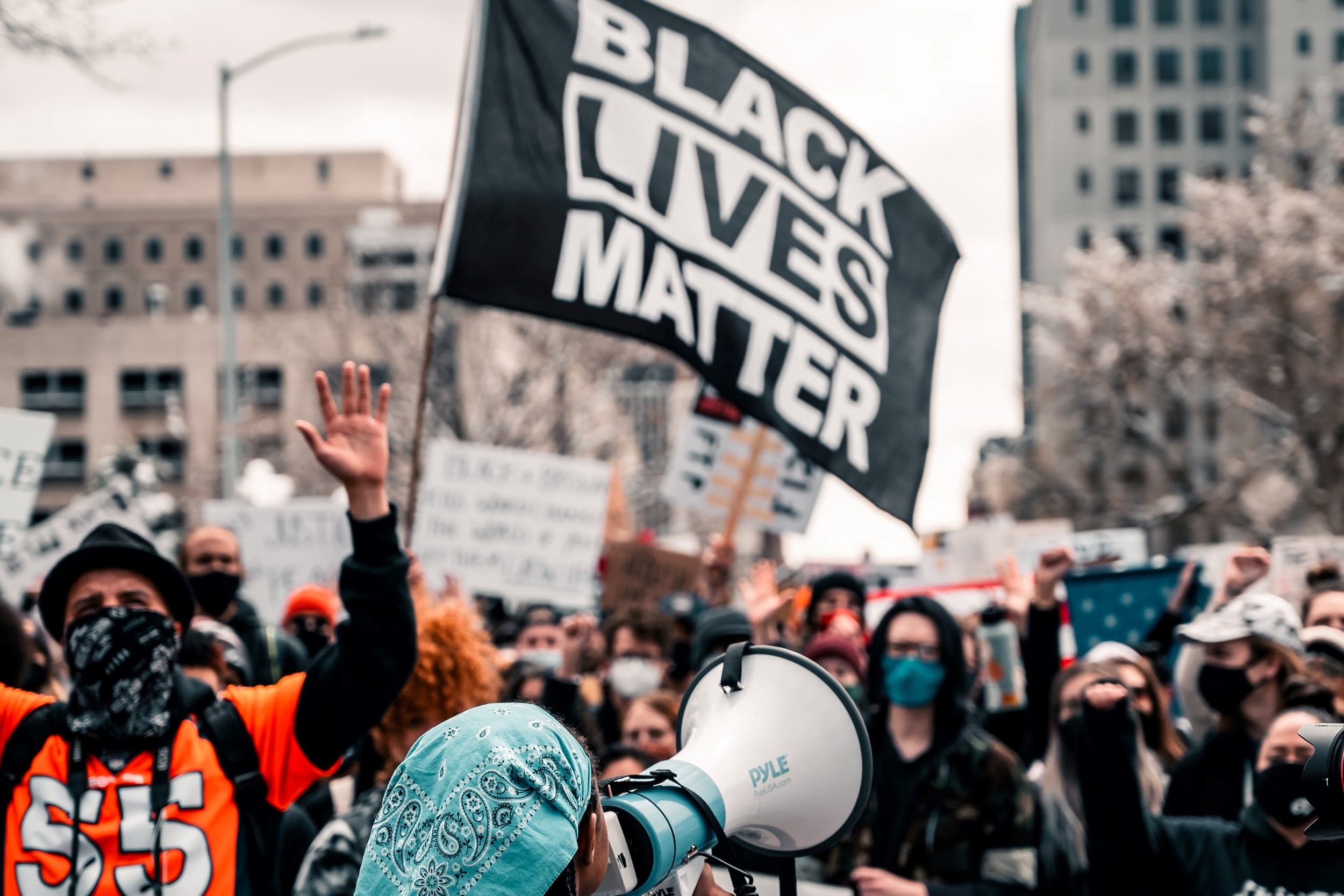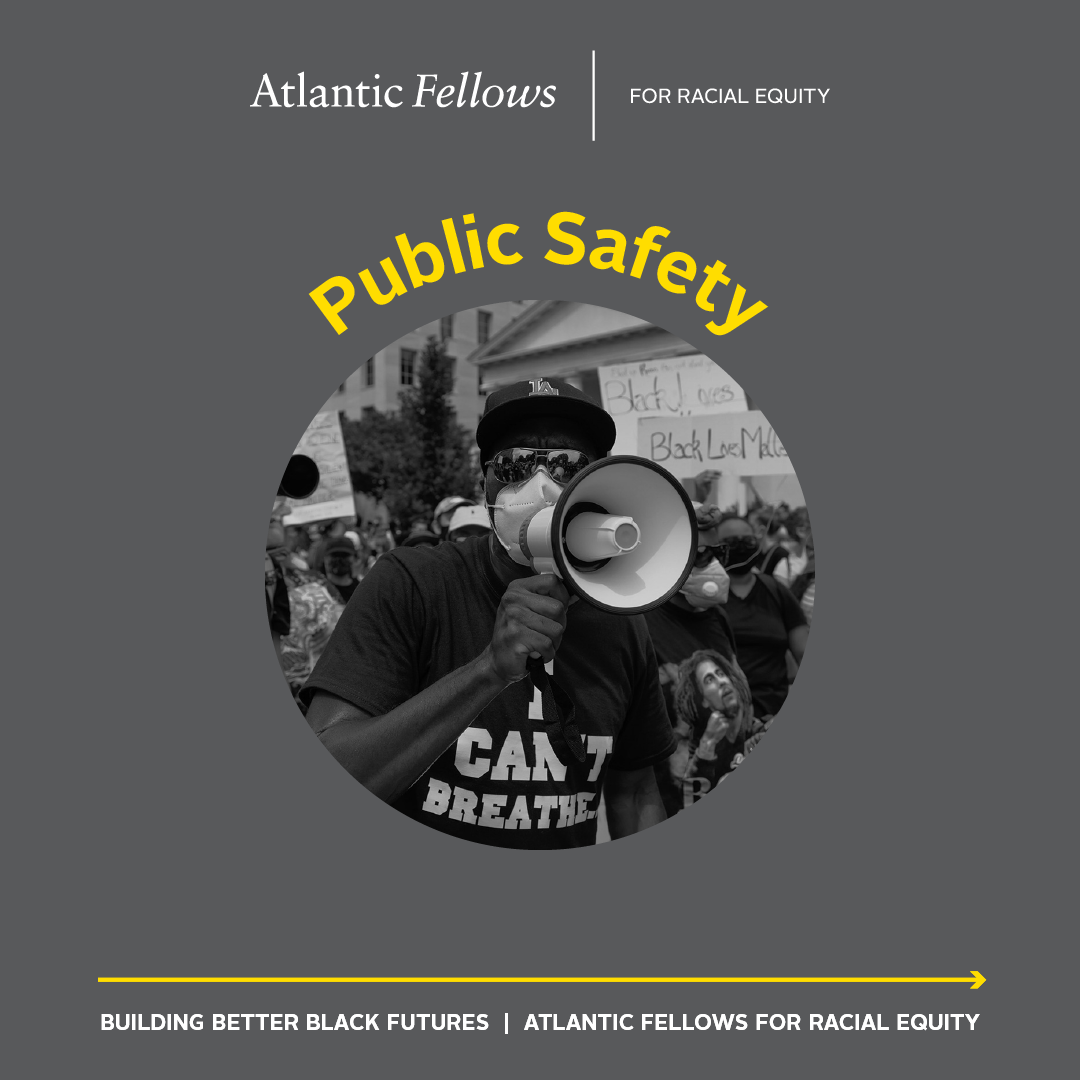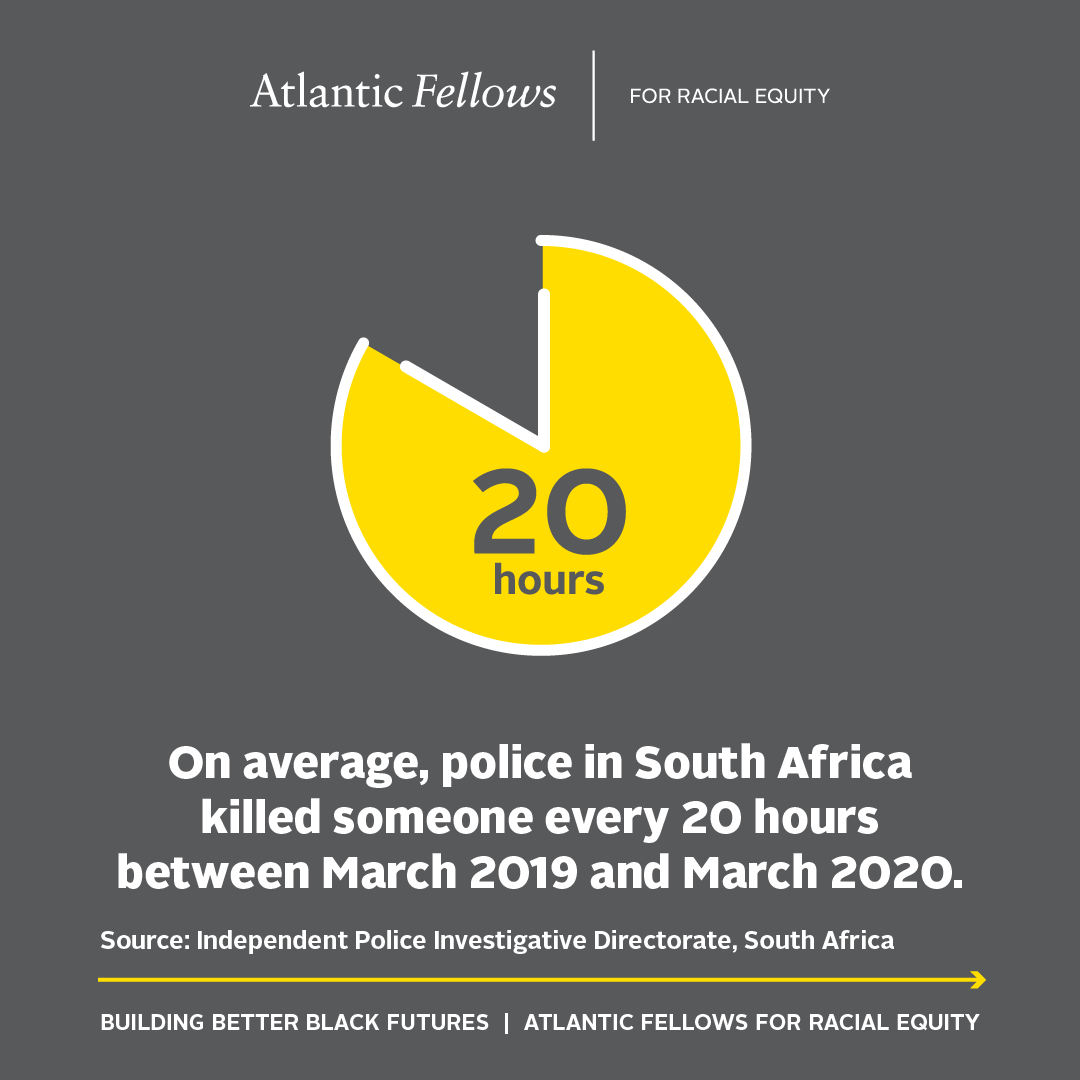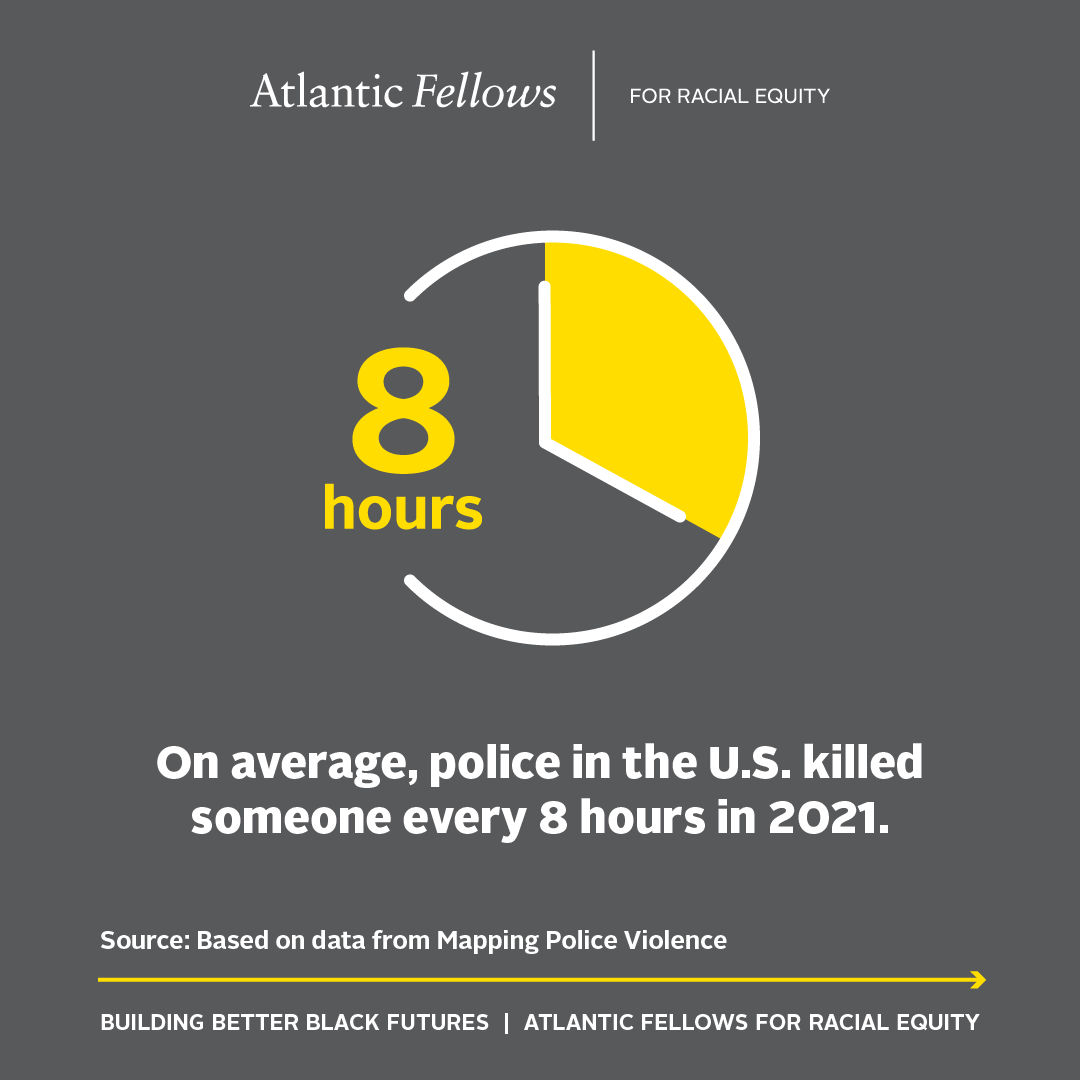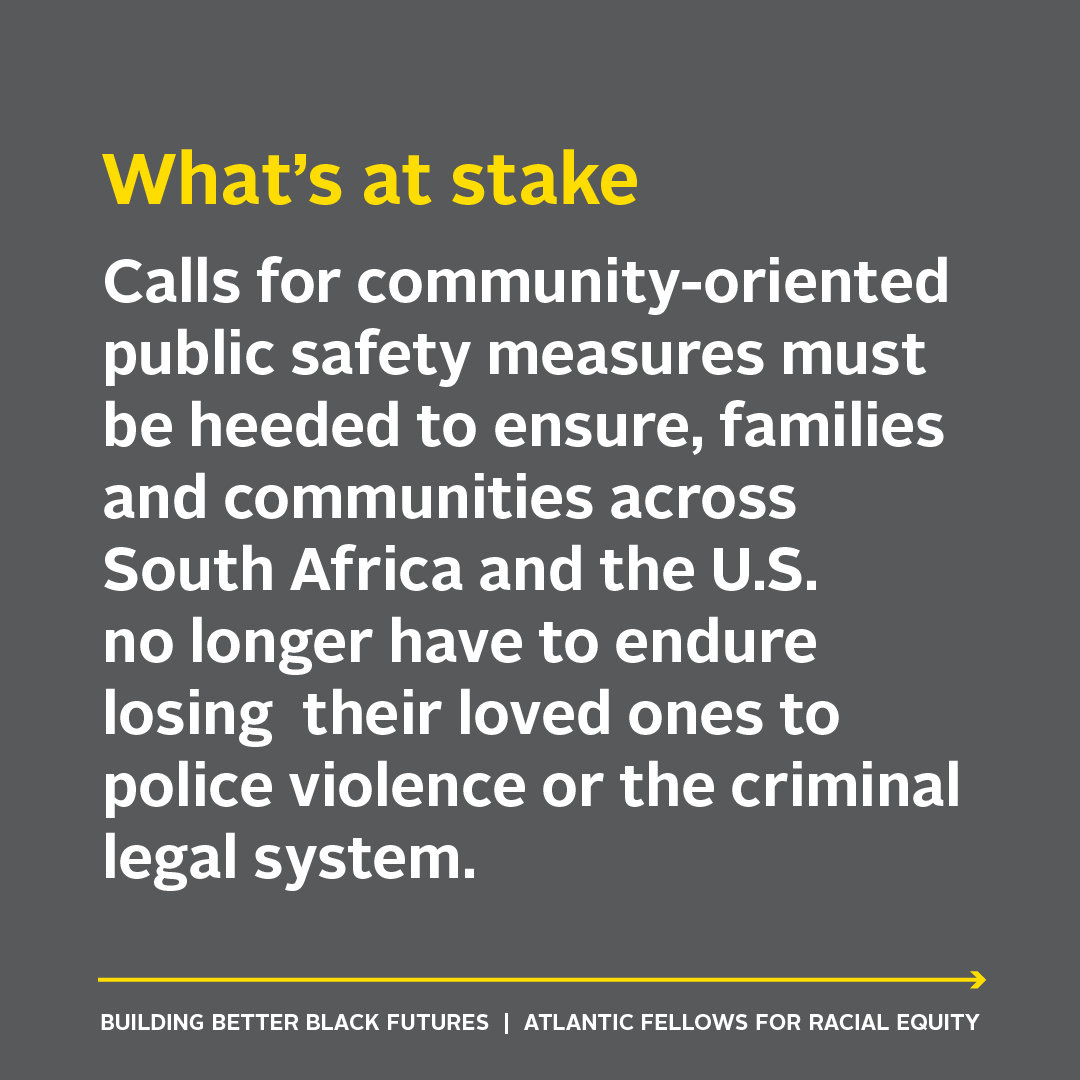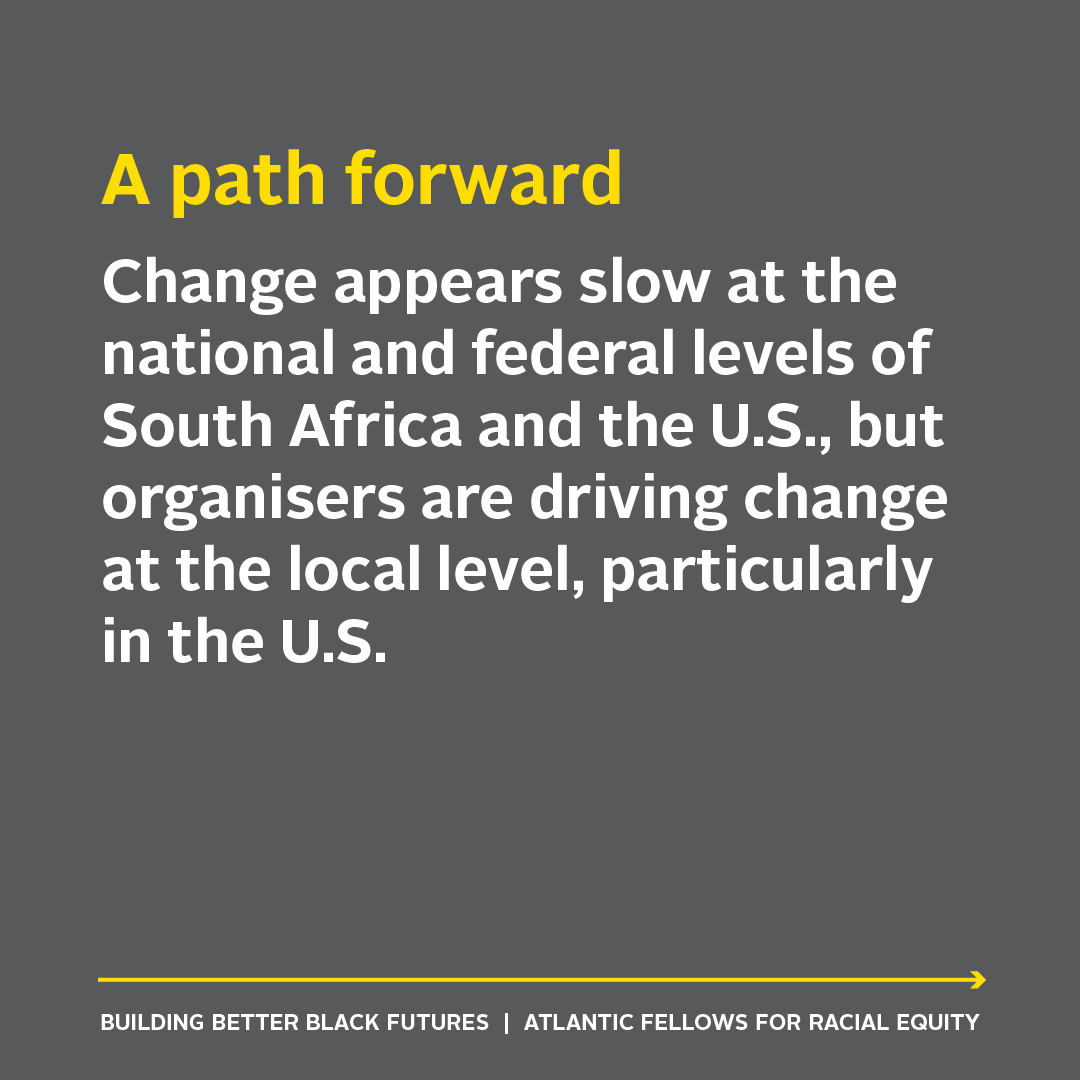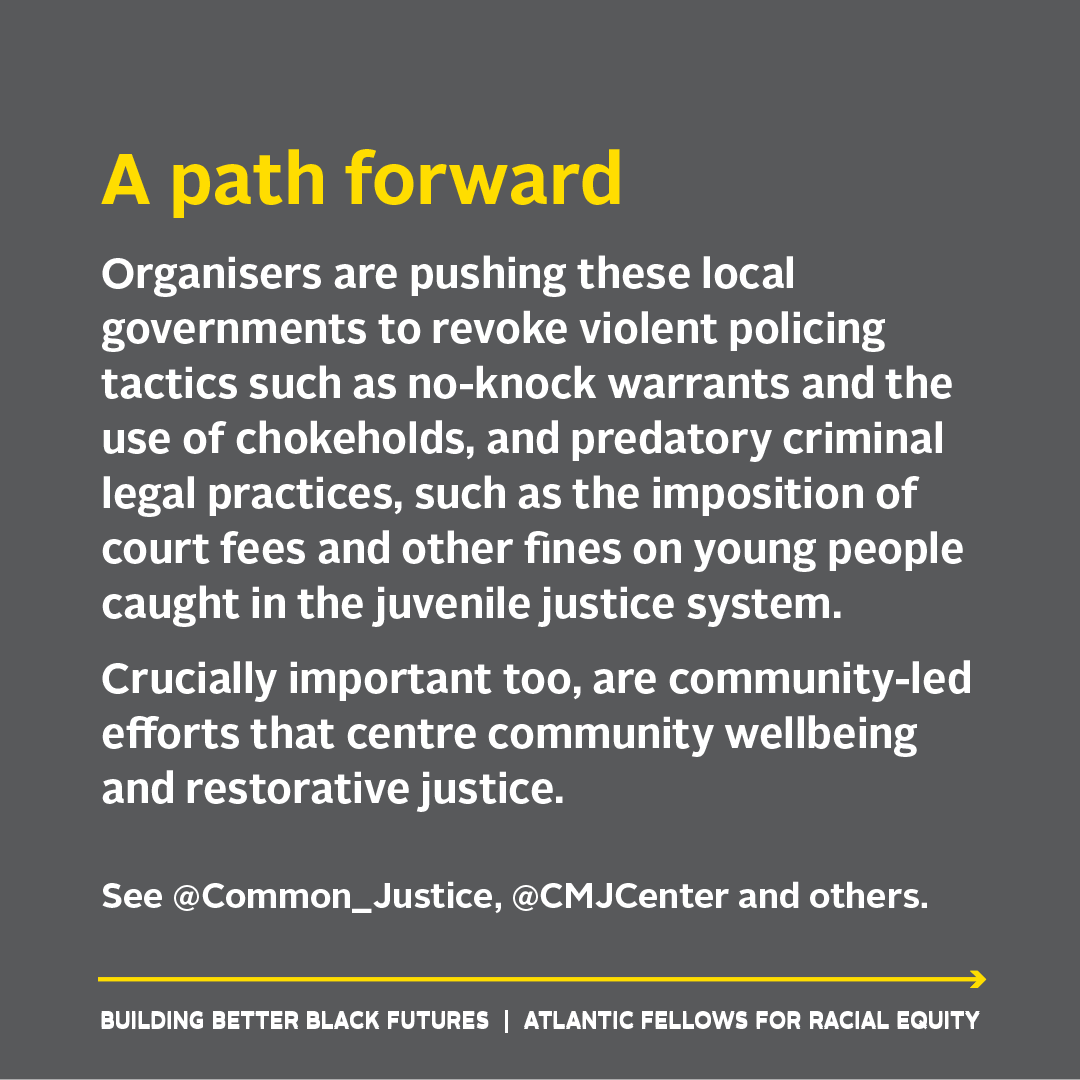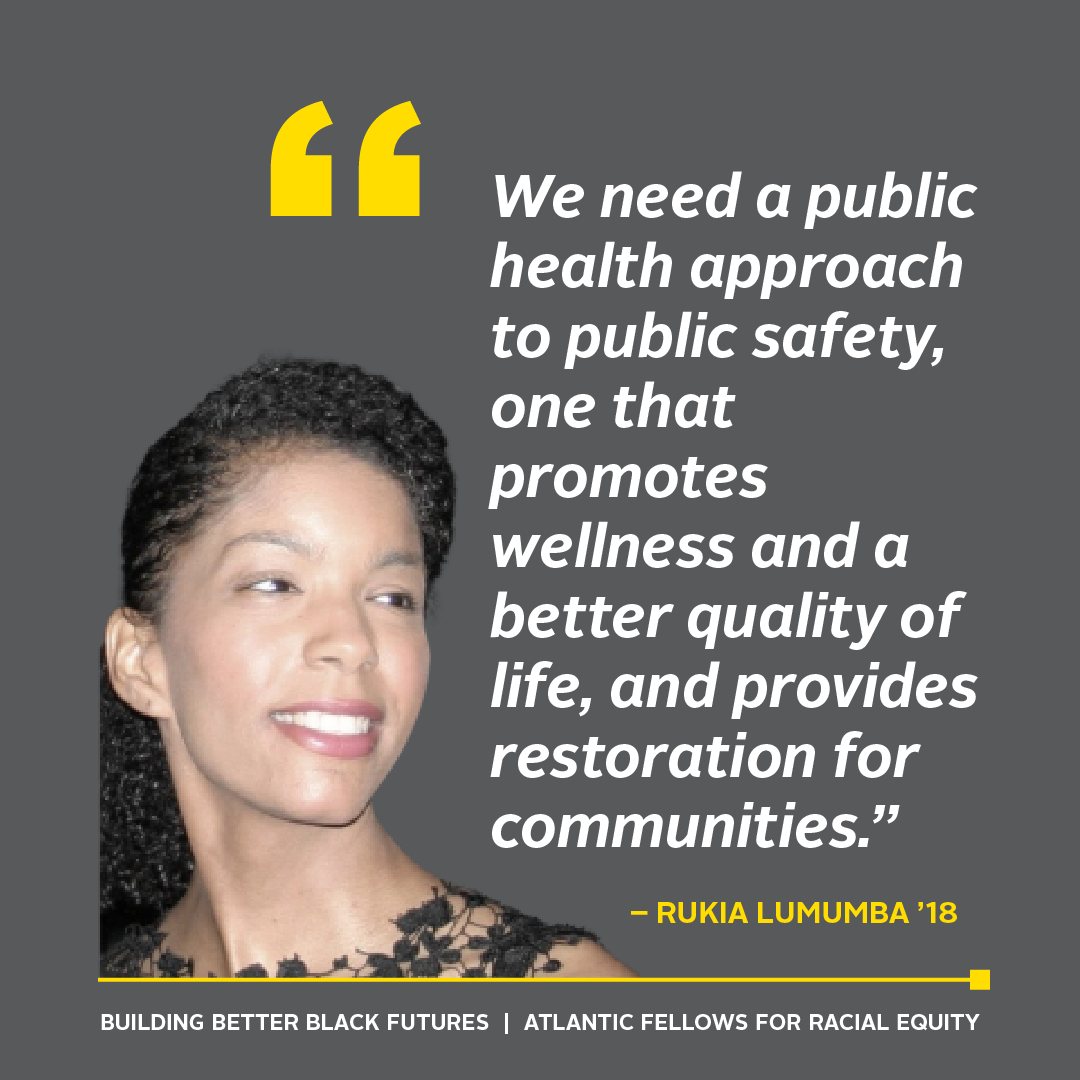Transforming Public Safety
On 9 January, 48-year-old Dumisani Joxo stepped out of his tent home to make sense of a nearby raucous. A scuffle had broken out after a law enforcement officer allegedly kicked over a local homeless man’s breakfast after instructing him to extinguish the small fire. When Joxo tried to intervene, the officer shot him in the mouth. He died shortly after.
Although Joxo’s killing happened in Cape Town, it is reminiscent of cases of police violence elsewhere in South Africa and the U.S.
Despite ongoing calls for community-oriented public safety practices, political leaders at the national levels in South Africa and federal levels in the United States have failed to transform policing. Policy analysts note that few of the recommendations made over the years have turned into policy in South Africa. And in the U.S., efforts to pass the George Floyd Policing Act were declared “officially dead” in September 2021.
This lack of political will notwithstanding, it would be a mistake to assume there is no movement happening on the criminal justice front. As Jessica Feierman'20 and Rukia Lumumba’18 observe, organisers, lawyers, and advocates working on the city and state levels in the U.S. are shifting the ground in important ways. Those changes vary from cuts to police budgets to bans on dangerous police tactics (no-knock warrants and chokeholds), new pathways for greater police accountability via civil lawsuits, and the removal of fees and fines for young people caught in the juvenile justice system.
Jessica, who works at the Juvenile Law Center, an organisation that’s part of the national campaign to abolish fees and fines, notes that fees and fines create an additional financial burden for families already under financial strain and often compound with inequitable access to stable employment and quality housing to push young people deeper into the justice system.
Similar structural issues reverberate in South Africa. The altercation that ended in the police killing of Dumisani Joxo was set off by anti-poor municipal laws prevent unhoused people from cooking outdoors. More broadly, advocates have observed that police in Cape Town and much of South Africa are especially brutal toward poor and working-class people.
Change, Rukia notes, requires rethinking public safety through a public health framework that focuses on communities’ health and wellness, and centres restoration rather than punishment when harm is done. Communities are already driving work rooted in these alternative ways of conceiving public safety as seen in the work at Common Justice, the Newark Community Street Team, and the Credible Messenger Approach.
Rukia, who leads the People’s Advocacy Institute in Jackson, Mississippi and is advocating for the BREATHE Act with the Movement for Black Lives, points to the importance of inter-linked public education and narrative campaigns to change perceptions of the role of policing in public safety, similar to how activists in 2020 built support to "defund the police."
"The whole purpose of the “Defund the Police” campaign was to begin a new conversation about public safety. The fact that this campaign became part of a presidential debate and that it has continued to gain support, and now has even become a narrative that has to be debunked means that the campaign did exactly what it was supposed to do."
To drive further change in perceptions of public safety, Rukia and Jessica emphasize the importance of listening to the communities most impacted by unjust policing and criminal justice practices. Because, ultimately, their experiences of the failures of this system make them best positioned to articulate what they need to feel safe.
Learn more:
Common Justice ; Debt Free Justice; George Floyd Policing Act; The BREATHE Act; The People's Response Act; The Credible Messenger Approach; Cops Don’t Stop Violence: Combating Narratives Used to Defend Police Instead of Defunding Them.
Lead Image by Colin Lloyd/Unsplash.
This piece is part of our 2022 Policy Slate for Racially Equitable Futures. Click here to visit the summary page and explore other issues.

